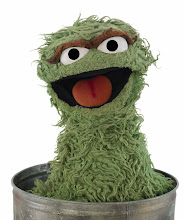Now famous for being the author of Let The Right One In (now a major film as the new edition of the book proudly proclaims) Lindqvist’s Handling the Undead contains some similar thematic concerns, chiefly those surrounding families and loss. It is this idea of loss that lies at the heart of Handling the Undead, in which (to quote the blurb) ‘Something very peculiar is happening in Stockholm. There’s a heatwave on and people cannot turn their lights out or their appliances off. Then the terrible news breaks. In the city morgue, the dead are waking up... What do they want? What everybody wants: to come home. Handling the Undead is a story about our greatest fear and about a love that defies death.’
What makes this book so interesting is that the horror seems to come from the living. The ‘reliving’ are tragic figures, stuck in a limbo that takes physical form. The focus on family tragedy and personal loss reconfigures popular culture’s vision of the zombie and inverts it. The lust for flesh does not come from the reanimated dead. They serve as ciphers, and their actions are manifestations of our own fears. In a kind of metaphysical martial art, they take the power of emotions and redirect them back. Therefore, hatred and anger leads to violence, whereas ‘happy thoughts’ result in passive undead. The exception to this passivity is an intriguing desire to understand movement through dissection (the translation uses deconstruction which, as a literary critic, is a dangerously overdetermined word), expressed in escalatory fashion from a metronome to a pet rabbit. The fact that the latter is a rare example of the usual register of horror writing only serves to amplify its effect.
Reading Handling the Undead is a strange experience. It never quite descends into the realms of zombie horror but instead is continually haunted by the genre expectations, resulting in an uncanny feeling of (un)familiarity. References to Resident Evil and Dawn of the Dead encourage this haunting intertextuality, as do echoes of Evil Dead in one family’s escape to an isolated cottage, but such cultural comparisons never fully emerge into the book’s narrative.
‘The dead have no existence other than that which the living imagine for them.’ So begins Jean-Claude Schmitt’s masterful ‘Ghosts in the Middle Ages’, and Lindqvist’s book resonates brilliantly with this notion. Handling the Undead dramatises what happens when the living are confronted with dead that return. What at first appears to be a joyous reunion of loved ones ‘from the undiscovered country’ (gotta get some Hamlet in there!) rapidly becomes a nightmare as the decaying shells that hint at but cannot fully signify the deceased people reveal the impossibility of life after death, at least in a physical sense.
The redemptive, even somewhat Rapture-like, ending would probably have turned off your humble scribe were it not for the tender portrayal of family life and the tragedies of parental loss that precedes it. Even a hard-hearted atheist like Mosca was close to shedding a tear at the beauty of Lindqvist’s evocations of release. It is here that the obligatory comparisons to Stephen King that predominate on the cover of English translations of his work are rendered somewhat inaccurate. Lindqvist is not, at least in this example, a horror writer in the American style. He uses the tools and tropes of horror writing to interrogate the psychology of loss and to examine how dislocated bereavement can become destructive. In doing so, Lindqvist takes the clichéd platitude of ‘If you love me, let me go,’ and injects it with new and tragic meaning.
Wednesday, 5 August 2009
Subscribe to:
Post Comments (Atom)

Fantastic article mr. Mosca. I'm really looking forward to reading this novel as I have just finished reading Let The Right One In ( fantastic albeit excessive in places). Any idea if mr. Lindqvist's third book has been translated yet?
ReplyDeleteNo news yet regarding any more Lindqvist in translation, but considering the success of the first two novels, not to mention the film and upcoming remake, it is surely just a matter of time.
ReplyDeleteHope you enjoy Handling the Undead.
I'm sure I wil. If it's anything like LTROI I won't be disappointed :-).
ReplyDelete